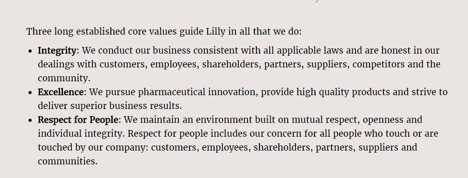
When you think of the things around you that make your quality of life better, what comes to mind? Food, heat, electricity, how about healthcare or better yet, life sustaining, life-saving medicine? For someone with Type 1 and Type 2 diabetes, access to insulin isn’t just a ‘benefit’ to them, it is literally life or death.
We’ve already discussed the ridiculous, high prices of insulin in the United States. We’ve made it pretty clear to the big pharmaceutical companies that access to the product they manufacture can mean living life, or having life be permanently put on hold. They understand the NEED, not just the WANT of affordability to these products. They know that we will go to any lengths, to ensure our loved ones and ourselves get access to insulin so they can stay alive.
Because of this knowledge, pharmaceutical companies like that of Eli Lilly, use it to their ‘benefit’ It’s not a matter of life and death for them, it’s a matter of filling their pockets and supporting their lavish lifestyles. Anyone with a conscious has a hard time wrapping their head around how they can take advantage of those who desperately NEED access to their insulin and still sleep like babies at night. Knowing full well that for most people, getting that access to insulin means eating or not, means keeping the lights on, or not. It’s not a mere inconvenience for those with diabetes, it’s downright unimaginable.
On May 2nd, Eli Lilly raised their price of Humalog by 7.81%. An already unaffordable vial of insulin, is not even more unaffordable for those who truly need it. This comes only months after Lilly sat down with advocates in the diabetes online community and listened to their heartfelt stories of trouble getting access to insulin they need, their family needs, their young children need. Heartstrings were supposedly tugged and Lilly reassured everyone they understood how important it was to those with diabetes and families of those with diabetes to have more affordable access to their insulin. They were so touched by everyone’s story that they decided to hit them even harder with a price increase, so they could have more touching stories to share down the road.
While Eli Lilly was founded in 1876, it wasn’t until 1996 when they first introduced Humalog, one of the very first insulin analogs on the market. Humalog has provided those with diabetes a better ‘quality of life’, and has allowed them to prevent many of the complications which we all fear. Lilly prides themselves on their core values which are listed right on their website.
Integrity: the quality of being honest, having strong moral principles.
Lilly is definitely following the laws and everything they are doing is ‘LEGAL’, but where they fall short in their integrity is “Having strong moral principles’. How can you say you conduct your business on strong moral principles when in fact you are taking advantage of a group of people who NEED your products to survive, not just to live a better quality of life, but to actually live versus the dying?
Excellence
They do in fact pursue innovation in pharmaceuticals and provide high quality products, this is one reason that many of those with diabetes use Humalog as their method of treatment. But here is where they fall short “Strive to Deliver Superior Business Results” …. Well they are delivering superior business results for one group of people, THEMSELVES. They definitely are getting superior results with the profits they are turning by exploiting those with diabetes.
Respect for People: Respect for people includes our concern for all people who touch or are touched by our company: Customers, employees, shareholders, partners, suppliers and communities.
Respect for customers, for those touched by their company? Really? I’m not 100% sold on this one to say the least. If you did have respect for those touched by your company, you might look at the situation and their complaints of better affordability when it comes to insulin differently.
I suggest reading the following:
Cost for Production
Medications used to be priced accordingly to their production costs and an allowance for a profit margin, but it seems that either a.) the production costs of insulin has SIGNIFICANTLY increased, or b.) that profit margin keeps going up and up and up and up, filling the pockets of those who benefit from such a profit. Eli Lilly has maintained their stance that the cost of producing their life saving medicines keep increasing and the price increases are only to help with these costs. I do understand that Eli Lilly is a company, they have employees to pay, bills to pay, etc., etc. I get it, 100%. What I don’t understand is how they can offer the same vial of insulin, the same formula, to other countries at much lower costs (i.e. $40 a vial in Canada vs $400 in the United States), if the price increase on the vials in the U.S is due to the production costs?
While Eli Lilly may think that many of those who hear this ‘excuse’, or what they call an explanation are not intelligent enough to realize this isn’t the reason, we are however in fact much more educated than they may think. What is the real reason behind the price increase?
They are taking advantage of supply and demand. Because the ‘DEMAND’ for insulin is so significant, big pharmaceutical companies like Eli Lilly know they can increase the costs for their products and we will still pay it, because what’s the other choice? Death.
Changes in Formularies
Another effect of the increasing prices has to do with health insurance formularies. At the beginning of 2017, CVS Caremark, one of the country’s leading (PBM) Pharmacy Benefit Managers, announced that they will no longer be covering Lantus. Instead they would favor a biosimilar product called Basaglar. In only three years from 2013 to 2016, Lantus has increased from $240 a vial to $380.
What Can Be Done?
The simple answer right now is…. NOTHING. We’re backed into a corner either forced to pay the ridiculous price or risk fatal consequences. However, there is some progress being made in the legal avenue. In January a lawsuit was filed which accused the three companies who produce insulin of conspiring to drive the prices of their insulin up. In just the past few years the prices of Sanofi, Eli Lilly and Novo Nordisk products have gone up like crazy. These price increases prompted patient advocate groups and even physicians to point out that the rising cost doesn’t appear to have anything to do with the production cost increases. The lawsuit, filed in Massachusetts courts, accuses these companies of exploiting the drug pricing system in the United States for their own benefit as well as intermediaries such as pharmacy benefit manager’s benefit.
Citing several unfortunate examples of patients with diabetes who have been unable to afford their treatments, costing upwards of $900 each month who have had to resort to using expired insulin, or putting themselves on a starvation diet in hopes of controlling their blood glucose levels. Some people have even allowed themselves to go into DKA just to get insulin from the emergency room at their local hospital. The lawsuit also claims that all three companies have raised the list prices on their insulin in order to get more favorable treatment form pharmacy benefit managers who work with health insurances companies and manufactures of prescription medications. Insurances companies do not pay the fee on the price list, instead their pharmacy benefit managers work to negotiate a rebate which is then returned to them. In turn the benefit mangers get a portion of the rebate, however, this total is not made available for public knowledge.
The problem with this is, that those without insurance are forced to pay the list price and when this list price increases, even those with insurance will see the total out of pocket cost increase as well. Almost $5,000 is spent on average every year for those with diabetes on medical expenses such as emergency room visits, which could potentially have been avoided if they were able to take their insulin as prescribed by their doctor.
Further reading:
Conclusion
My one and only question to these companies is why from 2003 until 2013 has the price of insulin nearly tripled and how do they sleep at night knowing that people with diabetes are suffering and dying because they cannot afford their insulin? Hopefully you can improve your life with these tips.
TheDiabetesCouncil Article | Reviewed by Dr. Sergii Vasyliuk MD on June 01, 2020
Reference
- https://static01.nyt.com/science/01-30-17_Insulin_Class_Action_Complaint_Hagens_Berman.PDF/
- http://www.cbsnews.com/news/insulin-price-hike-lawsuit-accuses-drug-makers-of-conspiring/
- https://www.goodrx.com/humalog
- https://www.canadianinsulin.com/buy-humalog-insulin-lispro-vials-online/
- https://www.businessinsider.com/rising-insulin-prices-track-competitors-closely-2016-9





